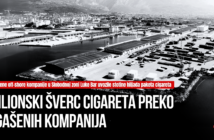Who is ruling Montenegro?
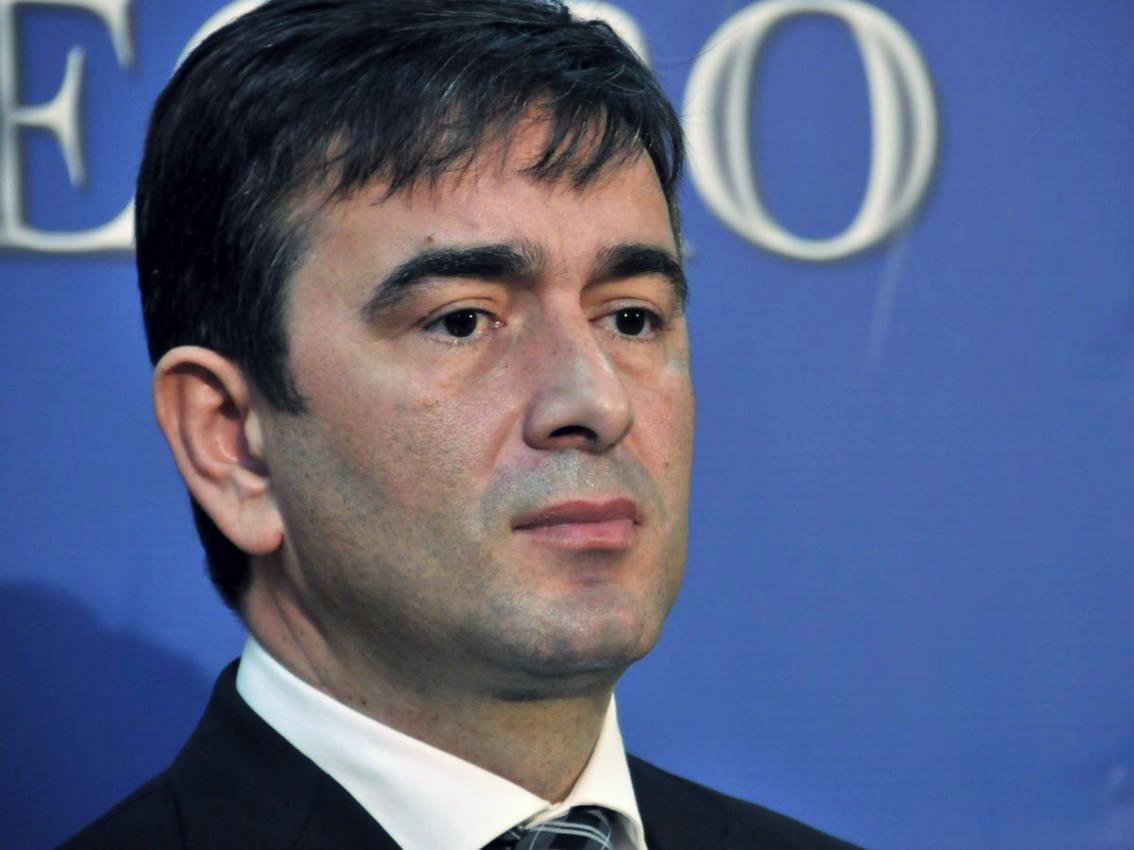 There has been two months since the opposition leaders Andrija Mandić and Nebojša Medojević have publicly stated the names of five people “who make a key connection between the government and organized crime“ in Montenegro. On the top of the pyramid they placed Branislav Brano Mićunović from Nikšić who is, as they say, “in this connection between the organized crime and government obviously superior” to the Prime Minister Milo Đukanović, a second-ranked on this list. They are followed by: Aco Đukanović, Stanko Subotić Cane and Darko Šarić.
There has been two months since the opposition leaders Andrija Mandić and Nebojša Medojević have publicly stated the names of five people “who make a key connection between the government and organized crime“ in Montenegro. On the top of the pyramid they placed Branislav Brano Mićunović from Nikšić who is, as they say, “in this connection between the organized crime and government obviously superior” to the Prime Minister Milo Đukanović, a second-ranked on this list. They are followed by: Aco Đukanović, Stanko Subotić Cane and Darko Šarić.
The story more or less ends here. Director of the Police Administration Veselin Veljović said that “he does not have time to comment on untruths and ungrounded statements”. Prosecution has “overheard” these accusations. If they didn’t Medojević and Mandić would have been called for an official interrogation by the State and Special Prosecutors Ranka Čarapić and Đurđina-Nina Ivanović, just like the University Professor Milan Popović, to submit evidence for their claims. And the aforementioned mainly ignored what the opposition leaders had said.
Does this all together confirm or deny what Mandić and Medojević said?
INFLUENCE: Let’s start from the obvious. The three first-mentioned persons on the list of masters, Mićunović and brothers Milo and Aco Đukanović, are on the tope of the list of the most influential people in Montenegro which is made, now we can say traditionally, by the daily “Vijesti” at the end of every calendar year. Only the sequence of most powerful and influential persons on the “official” and “unofficial” lists was switched.
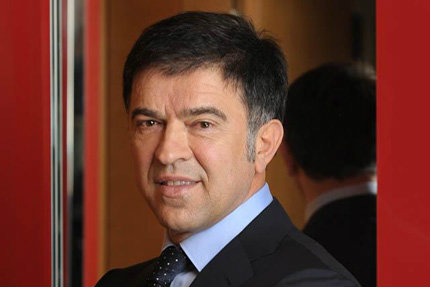 Šarić and Subotić, at least officially, are not Montenegrin citizens, so they could not be included on this list. However, given the space they are dedicated in our public life – beginning with the media, through the coffee bars to parliamentary debates – it is obvious that their social influence significantly overcomes the importance that a merchandiser and a hospitality industry worker should have, regardless the adjective “controversial” related to them ever since the moment their names became publicly known.
Šarić and Subotić, at least officially, are not Montenegrin citizens, so they could not be included on this list. However, given the space they are dedicated in our public life – beginning with the media, through the coffee bars to parliamentary debates – it is obvious that their social influence significantly overcomes the importance that a merchandiser and a hospitality industry worker should have, regardless the adjective “controversial” related to them ever since the moment their names became publicly known.
It sounds logical. But, is it? Or would it be that all of us – the author and readers of this text – are on the way of taking for granted the presence of this unsolvable social-political-economic enigma which lasts for more than a decade.
On the lists, let’s call them “black” and “white”, of the most powerful people in Montenegro there is Milo Đukanović, the man who has been ruling Montenegro for almost two decades as a Prime Minister, President of the state or Vice President of the ruling party. There is also his brother Aco who was at the time of a mono-party system a youth political activist and the organizer of student parties and today a majority owner of one of three most important banks in the state, attractive, millions worth real estate, and shares of local companies. Stanko Subotić, a former tailor from the cities of Ub, Paris and Belgrade gained wealth by doing business through Montenegro that was estimated by specialized economic magazines before the global economic crisis at half a million euros. Just like Subotić, Darko Šarić can justify his position on the “black” list: if not with anything else but with the “business” biography and a fact that he is one of rare Montenegrin “businessman” whose capital origin is well known: he stole it from his neighbor.
In September 1993 in the town of Pljevlja Šarić stole from his neighbor, a tailor, 72 thousand DEM, one kilo of gold and he escaped abroad. Five years later, he came back and paid his dues. In return charges were withdrawn. Since January this year Darko Šarić is escaped again. Previously he had developed his intercontinental cocaine business which had, according to the claims of the Serbian Special Prosecutor Miljko Radisavljević, a turnover of approximately five billion euros!
But how did Branislav Mićunović become a part of this society? He is not in politics, Interpol is not after him. Registry of the Commercial Court testifies that he was not a founder, a co-owner, a member of management or the authorized person of none of the companies registered in Montenegro. He is not on the website of 10 biggest shareholders or in the Registry of pledges.
“Mićunović deserves a place on the top of the list of the most powerful people because he enjoys respect of many important people in the country”, “Vijesti” supported their choice at the end of last year. “Even though most of the people from the list of 10 most powerful is directly involved in making important decisions in the state, some of them manage important institutions and services, but none of them individually, excluding the Prime Minister and his brother, cannot have in Montenegrin political and business establishment bigger authority than Brano Mićunović. Mićunović is the person who is addressed by many: parties in conflict or people with some unsettled disputes, and he is the one whos word counts in the end. He is said to be doing it successfully. The question is whether it is because those people love him and respect him, or because they are afraid of him. Maybe both! As far as we know Mićunović is now dealing with legal business, real estate mostly”.
What Medojević suggested to the government as a possible solution for “the affair Šarić” was on the same route: “I suppose that we, as politically responsible people, should bring a conclusion that one delegation of the Parliament address Mr. Mićunović, to schedule the meeting, to go and kiss the hand of Montenegrin sultan and to ask him to extradite Mr. Šarić, so that we can continue our European and Euro-Atlantic integration”.
The influence of Mićunović, should obviously not be questioned. If it is to be believed to what is said and written about him, he has obviously overcome the borders of Montenegro. Therefore, answerless remain the following question: what this man sucks his power from.
Four years after beating Zoran Kljajić, the Basic Court pronounced its verdict – the accused Aco Đukanović was not guilty. Three years later, at the retrial the charge was found outdated.
POWER, JUSTICE AND LAW: What is already known about Mićunović should not be repeated. Because, in the stories about the “last survived from the generation of tough guys from the Belgrade asphalt”, “the man more powerful than Milo Đukanović”, there are almost no facts. It is enough to say that according to the available data, Branislav Mićunović was targeted by domestic judiciary – from SFRY to Montenegrin – only one single time.
In October 2000 he was accused of killing with a gun at the stairs of the ER of the Clinical Center of Podgorica, before several witnesses the already wounded Radovan Kovačević while he was being taken in the hospital. The Higher Court Council presided by the judge Radovan Mandić liberated Mićunović due to lack of evidence. Witnesses have withdrawn their original statements. In the trial no one was able to testify about whose was the “hairy arm” that “emerged from the dark” and fired a gun. The retrial had the same outcome. The acquittal decision was finally confirmed in November 2007 by the Appellate Court.
This was neither first nor last case of witnesses changing their testimony and thus contributing to the acquittal verdict. However, it is much rarer case that evidences disappear from the court safe in case of murder without making any fuss about it. At the trial to Branislav Mićunović this actually happened, and the authors of the serial on football mafia shown on TVB92 “Rules of the Game” reminded us about it.
Out of the above mentioned five persons Aco Đukanović was the last one who was accused. He was accused of participating in a fight on 4 June 2002 together with his friend Vladislav Pajo Jabučanin in the lobby of the hotel “Crna Gora” in Podgorica in which Zoran Feki Kljajić got serious bodily injuries (double fracture of the skull). The accused, according to Montenegrin media, beat Kljajić with a pistol grip they kicked him and hit him with their hands all over his body and head.
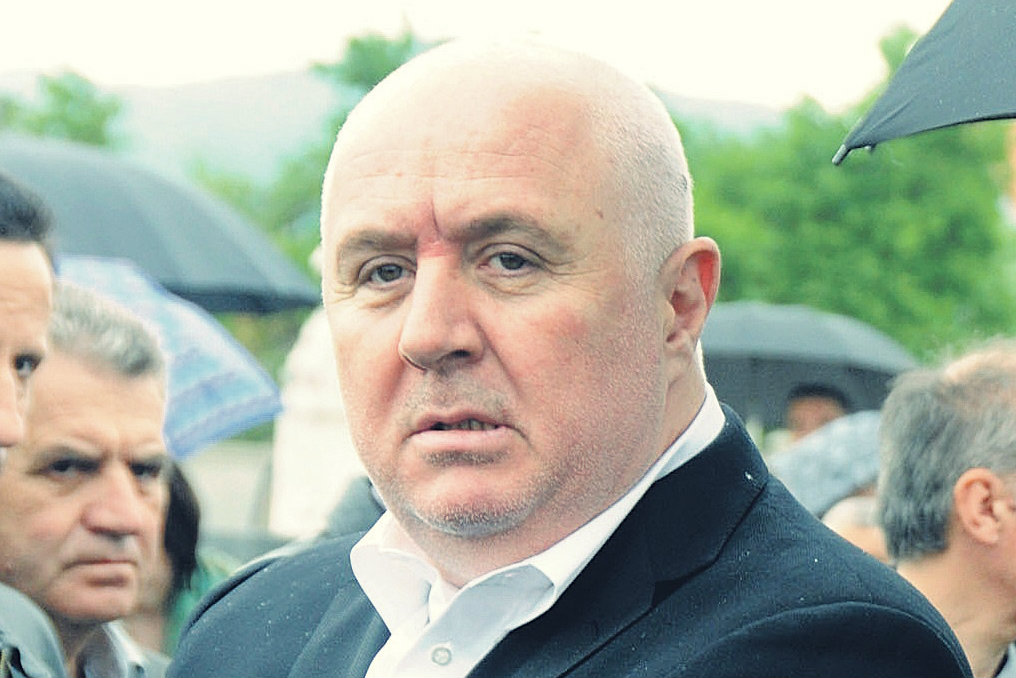 In detention in which he spent several following days Aco Đukanović stated in a letter that was presented to the public by his lawyer Dragoljub Đukanović that himself and Jabučanin voluntarily turned to police in Podgorica and since then they were in detention. Before and after this case this information was usually announced by the police. Đukanović offered his version of the event: “Kljajić’s insults that I had ignored until this incident have been lasting for quite some time. However since Kljajić has crossed the line of acceptable and decent behavior and since he dared to offend the honor of my family – my old mother, my sister, my sister in law – I reacted in the only way acceptable – in the way I believe every Montenegrin and every man who respects himself and his family would react. For doing so I am ready to bear all legal consequences”.
In detention in which he spent several following days Aco Đukanović stated in a letter that was presented to the public by his lawyer Dragoljub Đukanović that himself and Jabučanin voluntarily turned to police in Podgorica and since then they were in detention. Before and after this case this information was usually announced by the police. Đukanović offered his version of the event: “Kljajić’s insults that I had ignored until this incident have been lasting for quite some time. However since Kljajić has crossed the line of acceptable and decent behavior and since he dared to offend the honor of my family – my old mother, my sister, my sister in law – I reacted in the only way acceptable – in the way I believe every Montenegrin and every man who respects himself and his family would react. For doing so I am ready to bear all legal consequences”.
The investigating judge of the Basic Court in Podgorica Radomir Ivanović did not take the offered explanation for granted. That is why the official version of the event was somewhat different. Đukanović was accused of participating in a fight while his friend Jabučanin was accused of criminal act of causing serious bodily injury. “It turns that the one who actually defended more a family honor was Vladislav Jabučanin rather than Đukanović”, stated “Monitor” ten years ago.
Four years after beating Kljajić, the Basic Court pronounced a verdict – Aco Đukanović is not guilty. Three years later at a retrial it was stated that charge was outdated.
Nevertheless, Đukanović – a banker was known before and after the events in the hotel “Crna Gora” as a man who tends to resolve misunderstandings with violence. The former President of Montenegro Momir Bulatović in his book “Rules of Silence” describes a fight in 1994 “in which Aco fought together with his men with a crew headed by a tough Belgrade guy”.
In the hotel “Plaža” in Herceg Novi they took out their guns, there was gun fire, but there were no victims. The police made a thorough report and that was all they did”. Also, Bulatović claims in his book that at that time Aco Đukanović was “the exclusive fuel provider for the Italian smuggling speedboats”, and he also attributes him (without any evidence presented) some much more severe sins.
Aco Đukanović, as reported by the daily “Pobjeda”, in April 2004 sued Bulatović before the Belgrade court for, as he states, “untruths and defamation and insults” mentioned in his book “Rules of Silence”. The charge will, as it was announced, include the publisher as well as all the media which broadcasted false quotes of the former President of Montenegro. The text ends with Đukanović’s message: “Despite the evil, meanness, hoax and false statements from the previous period addressed to me and my family my Christian beliefs and trust in God and people require me to pray to God and St Vasilije Ostroški to forgive him his sins and to show him the right way and to help me defend myself from lies and evil of the people whom I have never done anything wrong to”. In the archives of Serbian and Montenegrin media there is no information on the epilogue of this charge.
Three years later after the summer 2007 the local media have shyly mentioned here and there the information on the physical fight of Aco Đukanović and Miomir Migoša, Mayor of Podgorica. The police have, as the well informed claim, skillfully covered up this dispute about “the directions of urban development” of the Capital.
Finally, since summer last year there were rumors about gun fight between the Prime Minister’s brother and Darko Šarić in which, allegedly, the boss from Pljevlja was beaten. When these rumors started appearing in the media in the region, Prime Minister Đukanović denied it all. “This is a speculation, and it is well known where it was launched from and with what intention”, said Đukanović in the interview to TV B92, “they (Darko and Aco) have never even met”.
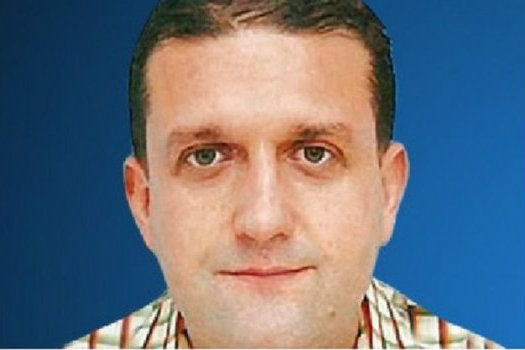 Let’s go back to the court room. In Belgrade a trial is underway against a group accused of damaging the state budget by tenths of millions of euros by smuggling cigarettes. According to accusations Stanko Subotić Cane was heading the “tobacco mafia”. And he was not among the accused in the court room only because he is out of reach of the Serbian police and judiciary who have issued the international warrant for him. According to the same principle the court room is for now staying away from Darko Šarić. However the man whose house he had robbed 17 years ago says that Šarić, as far as he remembers, was convicted in absence to a several-year imprisonment. President of the Supreme Court of Montenegro Vesna Medenica could not confirm this information. She has recently stated that she does not know whether Šarić was convicted in Montenegro. If not about other things, this speaks for itself about the professional curiosity of the first lady of Montenegrin judiciary – while the police officers from Europe to America were searching for Šarić, and while journalists were trying to find out any detail about him, the officials of the local judiciary did not even bother to check their own archives and records on criminal liability.
Let’s go back to the court room. In Belgrade a trial is underway against a group accused of damaging the state budget by tenths of millions of euros by smuggling cigarettes. According to accusations Stanko Subotić Cane was heading the “tobacco mafia”. And he was not among the accused in the court room only because he is out of reach of the Serbian police and judiciary who have issued the international warrant for him. According to the same principle the court room is for now staying away from Darko Šarić. However the man whose house he had robbed 17 years ago says that Šarić, as far as he remembers, was convicted in absence to a several-year imprisonment. President of the Supreme Court of Montenegro Vesna Medenica could not confirm this information. She has recently stated that she does not know whether Šarić was convicted in Montenegro. If not about other things, this speaks for itself about the professional curiosity of the first lady of Montenegrin judiciary – while the police officers from Europe to America were searching for Šarić, and while journalists were trying to find out any detail about him, the officials of the local judiciary did not even bother to check their own archives and records on criminal liability.
Šarić, however, is not a total mystery for the local security service. In the Blue Book which contains data on Montenegrin underground the Police and the Agency for National Security (ANB) mention Darko and Duško Šarić as “in security sense interesting persons, who originate from this region and who have escaped to Western Europe to avoid jail or liquidation”. These data were presented in 2007 to the Security Committee of the Parliament of Montenegro. Today we know that at that time Darko Šarić was already building his cocaine empire in Montenegro and in the region. But, this is a topic for another story.
Finally Milo Đukanović is the only member of “the five” who has never been accused of any criminal offense. However, if we believe the Italian Prosecutor Giuseppe Schelsi Montenegrin Prime Minister has a good excuse. He is protected by his immunity. That is why a part of Schelsi’s indictment which refers to him is ‘archived’. Permanently or until another time – this is yet to be seen.
FAMILY, FRIENDSHIP AND BUSINESS RELATIONS: Name of the Prosecutor Schelsi brings us to the third important element in a search for the answer to the question: is there a pyramid power that Medojević and Mandić talk about? It is connections we are actually talking about.
After a ten-year investigation, a court decision should be soon reached in Bari about whether the court will accept the Schelsi’s indictment which includes among other suspects from Serbia, Italy and Montenegro, along with the ‘archived’ Đukanović, two more heroes of this story suspected of international smuggling of cigarettes more than one billion dollars worth. These are Branislav Mićunović and Stanko Subotić who appear in court documents and media as some of main actors of years lasting “transit” of cigarettes through Montenegro to Italy.
The two of them were mentioned in Montenegrin media also as collaborators of the Belgrade businessman Nenad Đorđević in the business of purchase of several attractive real estates in the Riviera of Budva. Mićunović denied this information, but he did not give any public statement when the information was launched about the plans of himself and Subotić, Đukanović and Svetozar Marović to build the bridge that would connect the island of St Nikola with the coast of Budva.
Apart from the fact that they are countrymen, Mićunović is connected with the brothers Đukanović through the documents which mention all of them, that is, the so- called Swiss indictment based on which a group of Italian and Swiss citizens was trialed for money laundering earned in tobacco smuggling through Montenegro.
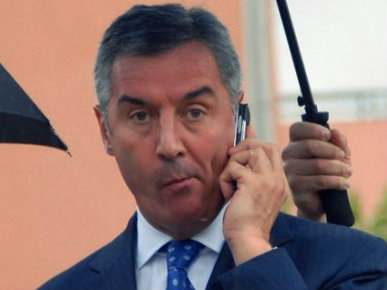 Friendship is what connects Milo Đukanović and Stanko Subotić (both of them confirmed it) which originates from the beginning of the last decade and the suspicion that they have jointly participated in illegal tobacco business and financial transactions. First, as claimed by Subotić himself, Subotić lent to Đukanović 100 dollars. “Once we were in a group of people sitting together and Đukanović needed 100 dollars and I lent them to him. I saw him after two months on a beach and he had the envelope with 100 dollars enclosed prepared in his wife’s purse. I couldn’t believe”. Then Đukanović’s “First Bank” lent to Subotić some 20 million euros he needed for some business deal. Then they got stuck with pay-backs for a while, but in the end the debts were recently paid.
Friendship is what connects Milo Đukanović and Stanko Subotić (both of them confirmed it) which originates from the beginning of the last decade and the suspicion that they have jointly participated in illegal tobacco business and financial transactions. First, as claimed by Subotić himself, Subotić lent to Đukanović 100 dollars. “Once we were in a group of people sitting together and Đukanović needed 100 dollars and I lent them to him. I saw him after two months on a beach and he had the envelope with 100 dollars enclosed prepared in his wife’s purse. I couldn’t believe”. Then Đukanović’s “First Bank” lent to Subotić some 20 million euros he needed for some business deal. Then they got stuck with pay-backs for a while, but in the end the debts were recently paid.
Banking business is what, for now, connects brothers Đukanović with Darko Šarić. Milo and Darko have taken loans from the same bank (“Hypo Alpe Adria Bank). At the same time Aco and Milo’s bank – despite the ban imposed by the Central Bank – credited a company owned by Šarić. What these businesses have in common is that each of them had a procedural deficiency. Subotić says that he knows Šarić only superficially, for only a year or two, and that they got acquainted by the son of Miroslav Mišković. Serbian media, calling upon the police sources, claim that their relations are much stronger – and illegal. Allegedly Šarić was using Subotić’s channels for money laundering while Cane was receiving from him cash which he needed to disguise his secret off-shore accounts from the interested investigators from Serbia and Italy.
The public, for now, is not familiar with potential relations between Mićunović and Šarić. Director of the Police Administration Veselin Veljović claimed that “Branislav Mićunović is not connected with Šarić by any means or with the actual action ‘the Balkan Warrior’”. Then, short after this statement the announcement from Italy came stating that Mićunović’s cousin from Belgrade is one of the suspects in the operation “Chess-Matt” in which one of the lines of Šarić’s drug-cartel was broken. Dušan Mićunović was recently arrested in Budva where he was hiding after his warrant was issued.
What if it turns out that other official truths about the activities of the organized crime in Montenegro are (un)truthful as well? Will this be a proof of the claims of two opposition leaders, or will it only be the confirmation of incapability of the state to deal with the problems of corruption and crime.

